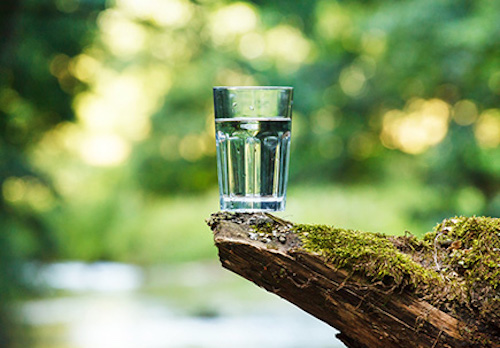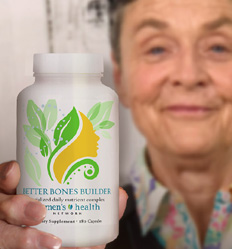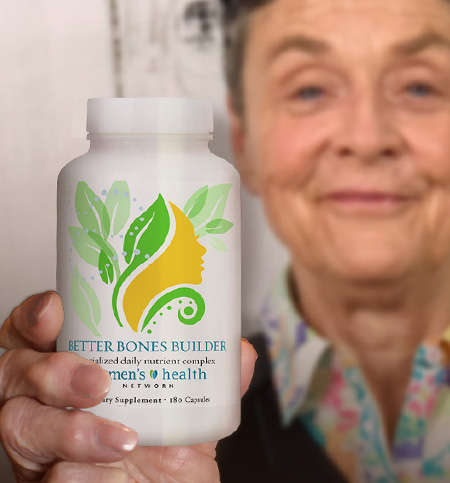Authored by Dr. Susan E. Brown, PhD
Alkaline water is having its day in the sun. But is it really a good way to promote alkalinity? Frankly, some hip health products are more about marketing than science.

When you understand how alkalinity occurs in the body, you’ll be able to separate fact from fiction — and be healthier in the process. Let’s start with the basics (pun intended!).
What is “alkaline water” — and how alkaline should it be?
Water is considered alkaline if it has a pH reading above 7 (7 is neutral on the pH scale). The pH of some of the best-selling alkaline water brands ranges from 8 to 10.
But pH is not a case of “more is more” — we’re not after the highest pH we can get. The reason is that very high pH is unhealthy. When the pH of water reaches 8.8, there are dire effects on digestion. That’s because the higher pH inactivates the digestive enzyme pepsin, which would lead to a decrease in HCL production — and much weaker digestion. That’s why the pH of municipal drinking water should be between 6.5 to 8.5, according to the EPA. And the same holds true for “alkalizing water”— no matter the price.
It’s not true that a high pH makes something alkalize your body
Whether a food or liquid alkalizes the body does not depend on the pH reading of that particular substance. For example, lemon juice is very acidic (i.e. it has a very low pH), yet it is very alkalizing.
What’s important is not the original pH of a substance but instead, the net effect after it has been metabolized in the body. When acids like those from citrus are metabolized, they produce bicarbonate — a strong agent that helps the body alkalize. But other acids, like the hippuric acid found in cranberries, both enter and leave the body as acid, and so they are acid-forming within the body.
If it’s not pH, what makes something actually alkalize your body??
The alkaline forms of certain minerals found in a liquid can make it alkalizing. Specifically, the body uses the alkalizing forms of potassium, magnesium, calcium and sodium to buffer acids. These minerals are alkalizing because they are attached to negatively charged anions such as carbonate, hydrogen carbonate and ascorbate. Waters high in alkalizing mineral forms really do help alkalize the body.
The major minerals to look for in alkalizing water are bicarbonate, calcium, magnesium and potassium. When it comes to water, its alkalizing capacity can be described in terms of its “total dissolved solids,” or inorganic mineral salts of organic matter that’s present in the water.
The label of water that is truly alkalizing will say it contains a significant amount of “total dissolved solids.” It’s the metabolism of these minerals that has an alkalizing effect, not the pH of the liquid.
So what is “natural” alkaline water?
Real healing, alkalizing waters are natural mineral waters from under the ground. And studies show that natural mineral water is effective at promoting bone and overall health. The best known of these are the European mineral waters originating high in the mountains. These waters pick up mineral salts from rocks and earth as they forge their subterranean path down the mountains. The World Health Organization reports that the concentration of total dissolved solids from natural water sources varies from fewer than 30mg/L to as many as 6000mg/L, depending on the solubility of minerals from different geological regions.
According to European regulations, only water with at least 250mg/liter of minerals may be called “mineral water.” Water with 500mg/liter or more may also be designated “high mineral content.” Natural mineral water must be bottled at the source so its chemical properties can’t be altered. And indeed, studies show that natural mineral water is effective at promoting bone and overall health.

Is synthetic alkaline water just as good?
Synthetic alkaline water can be divided into two groups. One is purified water with added trace minerals. The second is produced by electrolysis and it’s even more artificial. A machine separates the hydrogen (acid-forming) and hydroxyl (alkalizing) components of water and renders two waters, one highly acidic and the other highly alkalizing.
The label on this kind of “alkalizing water” might say it was made by electrolysis. Such waters can have a pH of 9 or above — high enough to inactivate pepsin and decrease stomach acid production. In fact, the only medically approved use of these high pH waters is to treat acid reflux in Japan and Korea. Proponents of alkaline water made through electrolysis make broad claims about its health effects but to date, the only official medical use is for excess stomach acid.

How can you judge the alkalizing effect of your water?
To see if your “alkalizing water” is really good for you, put it to the test. Eat a fairly consistent diet and measure the pH of your first morning urine every day for a week. Then, without changing your diet, add your “alkaline water” for another week and then take another measurement of your first morning urine pH. If your urine pH was below 6.5 the first week, and the subsequent consumption of the alkaline water helped raise your first morning urine pH into the optimum 6.5 to 7.5 range, then it is alkalizing.
My Alkaline for Life Diet Starter Kit makes it easy to take regular pH measurements so you can help your body alkalize. You’ll also get my book, The Acid-Alkaline Food Guide – all the information and supplies you need for measuring and optimizing pH.
Bohmer, H., Muller, H., & Resch, K. L. (2000). Calcium supplementation with calcium-rich mineral waters: a systematic review and meta-analysis of its bioavailability. Osteoporos Int, 11(11), 938-943. doi:10.100/s001980070032
Brown, Susan and Larry Trivieri. Acid-Alkaline Food Guide, Square One Publishers,NY 2013
Burckhardt, P. (2008). The effect of the alkali load of mineral water on bone metabolism: interventional studies. J Nutr, 138(2), 435s-437s. doi:10.1093/jn/138.2.435S
Koufman, J. A., & Johnston, N. (2012). Potential benefits of pH 8.8 alkaline drinking water as an adjunct in the treatment of reflux disease. Ann Otol Rhinol Laryngol,121(7), 431-434. doi:10.1177/000348941212100702
Wynn, E.,Krieg, M. A., Aeschlimann, J. M., & Burckhardt, P. (2009). Alkaline mineral water lowers bone resorption even in calcium sufficiency: alkaline mineral water and bone metabolism. Bone, 44(1), 120-124. doi:10.1016/j.bone.2008.09.007









